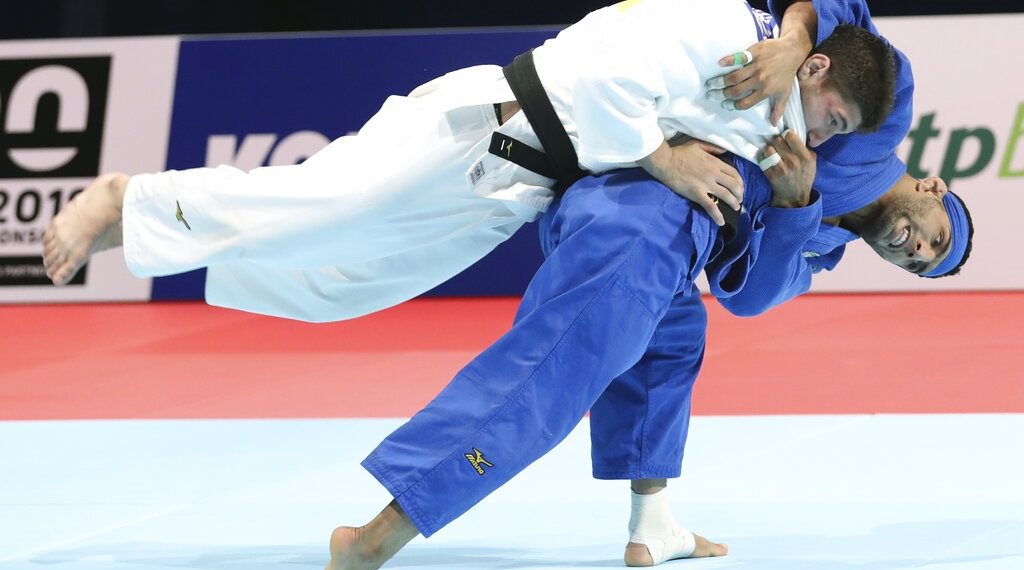Int’l Judo Federation hits Iran with indefinite ban for pressuring fighter not to face Israeli rival

Iran has been banned indefinitely from international competition until it can give strong guarantees that its athletes will be allowed to face Israelis, the International Judo Federation (IJF) has said.
The IJF decision follows a protective suspension imposed on the Iran Judo Federation on Sept. 18 for putting pressure on one of its fighters to withdraw from the world judo championships to avoid having to face an Israeli opponent.
The ban extends to all competitions, administrative and social activities organized or authorized by the IJF and its unions. Iran has 21 days to appeal to the Court of Arbitration for Sport, the IJF said in a statement.
Saeid Mollaei was pressured by Iranian authorities to drop out of his quarter-final and semi-final bouts at the Aug. 25-Sept. 1 world titles in Tokyo to avoid a potential final with Israel’s Sagi Muki, the IJF said.
The 2018 world champion, who is in hiding in Germany, has refused to return to Iran over fears for his safety after ignoring the orders from its National Olympic Committee and government.
The Iran Judo Federation has denied instructing Mollaei to withdraw from competing, saying that his statements were false and made to “speed up his change of nationality process.”
Although Iran has never won an Olympic medal in judo, they were viewed as strong contenders in Tokyo 2020. However, the ban puts a question mark over their participation because qualifying depends mainly on world ranking points earned in IJF events.
This is not the first time athletes from Arab nations or Iran have been told to pull out or refuse to compete with Israeli competitors in Olympics or other international events.
At the 2004 Athens Olympics, then Iranian world champion Arash Miresmaeili refused to fight Israeli judoka Ehud Vaks, earning praise back home.
At Rio de Janeiro in 2016, Egyptian judoka Islam El Shehaby was sent home after refusing to shake the hand of Israeli Or Sasson after their bout.
Read more: Israel Hayom
